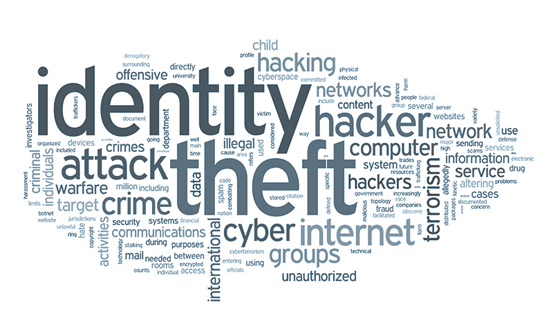Social Networks: Nucleus of Identity Theft
 It’s been nearly two decades since the internet and it has revolutionized the human-computer interaction in a way that could motivate one to self-destruct in the name of addiction.
It’s been nearly two decades since the internet and it has revolutionized the human-computer interaction in a way that could motivate one to self-destruct in the name of addiction.
The growth of internet within short span is presumably faster than the time near a black hole. But, what we should be aware of, is the man-machine interaction and its disadvantages. As we call this as the Facebook era, it is exactly what that accentuates the internet.
Mark Zuckerberg is probably lucky enough because he would never fall short of friends and he knows more about us than others. It’s because we ourselves fall prey and become victim to a social cobweb.
The user profiles in social networking sites are perhaps the most valuable asset. The user personal information on the social network database can be a king’s ransom and could rake in a lot of profit if it is mishandled. But there are always chances that it has been already sold.
We share a lot of information on social networks that may leave footprints beneficial for others, starting from our name, native, where we stay, contact information and mail id. These information’s are enough to crack one’s identity, maybe steal belongings or even commit a crime using the false identity of ours.
There is little more secondary information that may cause adverse effect as well. Information’s such as School location/Graduation Dates, interests, hobbies and marital status can very well support Social Engineering or in other terms Psychological manipulations.
According to a popular Whistleblower and Computer Professional Edward Snowden, people who care about their privacy should stay away from popular consumer Internet services like Dropbox, Facebook, and Google. The reason behind is the identity theft and losing the rights in terms of privacy.
The updates we make on Social Networking sites like Facebook and Twitter can be a threat as criminals coexist on the same cloud and if you update that you are out of town on vacation, then probably you are setting up for burglary. When it comes to stalking or stealing identity, use of photo and video sharing sites like Flickr and YouTube can provide deeper insights into you and your family.
Below are just a few examples of how this information can be used to compromise your identity:
- Phishing attempts using this information can be used to gain trust in order to obtain non-public information through online conversations.
- A Portland, Oregon, USA, company was recently attacked with false Better Business Bureau complaints in order to obtain additional information about the company and its employees.
- GPS-enabled phones sharing your location can reveal sensitive information like your home address, work address and the places you visit.
- Ninety-five percent of Facebook profiles have at least one application, many of which are not reviewed and can be used for malicious and criminal purposes.
- False profiles can be used to fuel resume fraud or defamation of character. A Canadian reporter recently was defamed via a false profile that included misleading posts, poorly considered group memberships and intellectually inconsistent political positions.
- An American soldier abroad in Iraq discovered his bank account was repeatedly being accessed online and drained. A security expert was able to replicate access with nothing more than his name, e-mail and Facebook profile.
There are possibilities that the social networking giants compromised to sell the data about user either to government or private organizations. The Identity Theft/Selling may be an uncommon issue, but at present due to the serious involvement of money and hackers, it could be a threat for everyone thus enabling many to tunnel through our privacy.
There is a reason why Facebook spent $19 Billion on acquiring a free service like Whatsapp. Our data could cut a deal for Billions, next time you share a selfie or register yourself on apps like TrueCaller, remember that these are a trail of breadcrumbs left for the Demons on Internet to follow.